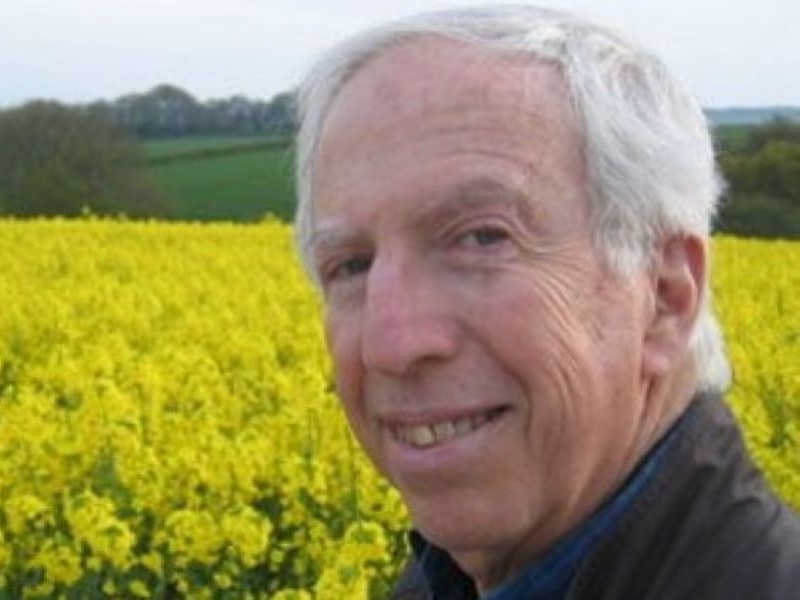 Roger Graef
Roger Graef
Roger Graef, who has died at the age of 85, and was primarily known as a television documentary-maker, was a long-standing friend of the Mannheim Centre at the LSE and was a significant figure in the worlds of criminology and criminal justice.
Born in New York City in 1936, he moved to Britain in 1962, remaining here and becoming a British citizen in the nineties. He started out directing plays at Harvard University and his success led to a toehold in television via CBS’s director’s program. On arrival in Britain he continued to combine theatre and television, though increasingly it was the latter that was to dominate. Throughout the sixties and seventies, Roger was involved in a staggering range of television and film projects, reflecting his remarkable energy and the extraordinary range of his passions, including politics, music, art and, particularly, architecture. Among his programmes in this period there were studies of John Huston, Pierre Boulez and Walter Gropius.
Much of his career was dominated by campaigning television and by a fierce determination to highlight and to tackle social injustice. This was visible in one of his first films, One of Them is Brett, which focused on the thalidomide scandal, and in particular the eponymous Brett, and what was described as this ‘spirited four-year-old’s fight for identity and survival.’ A follow-up, A Life With No Arms, found Brett in 2015, fifty years on, ‘now a musician, record producer, businessman, and a loving single dad with three ex-wives’.
Roger Graef’s pathbreaking career as a ‘fly-on-the-wall’ documentary maker began in 1972 with a series of cross-Atlantic films focusing on the ways in which communications work within family, school, politics and diplomacy. He followed this up with a look inside British government for Granada TV entitled, State of the Nation: A Law in the Making. He then used his fly-on-the-wall skills to produce a film of a three-night comedy fundraiser for Amnesty International that was being organised by John Cleese (A Poke in the Eye with a Sharp Stick), later released as Pleasure at Her Majesty’s, and continued his involvement with their more illustrious follow ups known to us all as The Secret Policeman’s Ball. He co-produced Comic Relief with Richard Curtis in 1985.
In the early eighties he secured permission from Thames Valley Police’s chief constable, and later Metropolitan Police Commissioner, Sir Peter Imbert, for a new multi-part documentary. Filmed entirely in a police station in Reading, it used fly-on-the-wall techniques to look beyond the typical dramatic representations of policing. Eventually broadcast under the stark title, Police, the programme remains today one of the most remarkable studies of British policing. Rather as the best ethnographic research can do, Graef and director Charles Stewart’s unassuming televisual style got the viewer inside the police, offering great depth and nuance, allowing officers’ everyday worlds to unfold at slow pace and in their own words. In the case of one episode, A Complaint of Rape, these words were to have far-reaching consequences. The programme focused on the treatment of a woman reporting that she had been raped by two strangers, and centred around the interviewing officers’ disbelieving, intrusive and hostile questioning. Filmed from the complainant’s point of view – she is not seen – the film laid bare not just the appalling treatment women faced when making such allegations, but the fact that as Roger observed, ‘the police simply didn’t’ get it.’ Watched by 12 million people, making the news on both sides of the Atlantic, prompting the prime minister, Margaret Thatcher, to join in the criticism, slowly but surely – if far from entirely satisfactorily – the BAFTA-winning programme pushed the police to change. It remains a landmark in television and in criminology.
Roger’s fascination with criminal justice continued for the remainder of his career, taking in youth justice, restorative justice, further studies of the police, and a three-parter entitled The Truth About Crime. These interests brought him visiting posts at LSE and Oxford and made him a regular contributor on radio and television to debates about the justice system. He won a host of television and film awards, was awarded an OBE for services to film-making and broadcasting in 2006, was a member of the board of the ICA, a founding board member of Channel 4 and became an Honorary Fellow of the Royal Institute of British Architects. He extended his professional interests into equally considerable work in the charitable sector, with significant involvement in the Koestler Trust, Prisoners Abroad, the Addicted Prisoners Trust, Trust for Music in Prisons, as well as being a member of the Metropolitan Police’s Independent Advisory Group on Race among many other activities.
He was an irrepressible character, always with ideas and an opinion, usually with several projects on the go and with suggestions for new ones. He was a ‘presence’ in Mannheim, a regular attender at seminars and presentations, at least as interested in masters and doctoral students as he was in established figures, and often with a big new idea to promote. He’ll be remembered first and foremost within Mannheim of course for his hugely influential work - but also for the twinkle in his eye and his sense of humour. The pandemic kept most of us apart during the last couple of years, but anyone who was in Roger’s WhatsApp directory will have had at least weekly messages containing jokes, memes, excoriating criticism of the failings of those in power, all interspersed with selections of classical music and opera. All very Roger.
Tim Newburn